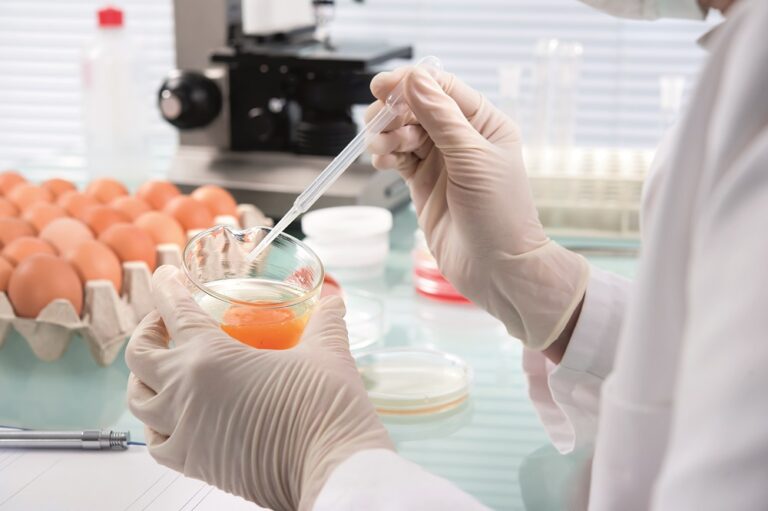Testing your birds is important, even though the coronavirus restrictions mean there are lots of practical difficulties
By Stephen Lister, vet
Part of the “business as usual” requirement for poultry production is ongoing statutory testing for salmonella and general diagnostic work to protect health and welfare and ensure food safety.
Part of the Government’s strategy has been to divert all biological science laboratory capability towards coronavirus testing. In addition, we are dealing with a backdrop of social distancing and potential loss of technical and support staff who may require self isolation, which could impact on laboratory throughput.
All of this is likely to impact on the service veterinary laboratories can give to our industry at this time. APHA has engaged with all poultry accredited laboratories to try and determine any pinch-points in testing capacity, and possible pooling of resources.
All practice accredited laboratories have put in place robust contingency plans to maintain safety and continuity of service and may need to prioritise statutory samples over more routine monitoring.
So how can we all help avoid delays and difficulties?
Many salmonella and other samples submitted to accredited laboratories are done so by Royal Mail. The mail system is under significant pressure, especially where sorting offices are in big cities.
All samples MUST continue to be tested within a strict limit of 96 hours after sampling. Depending on straightforward first-class post is probably not sufficient in these difficult times.
Hand delivery or guaranteed Special Delivery are a recommended minimum, although guarantees are difficult to enforce for the mail service at this time. Where possible courier services delivering door to door should be considered if the sampling to testing gap is to be adhered to and compliant samples tested.
The timing of samples taken also needs to be thought about. For meat birds, samples still need to have been taken within 21 days of initial slaughter. It may be necessary to take samples a little earlier than normal to ensure that a completed result is received prior to first loads going to the processing plant, even if this means a second sample may need to be taken if heavier, older, birds are also to be slaughtered later.
The Government has warned that their laboratories that confirm the specific serotyping (eg kedougou, mbandaka or typhimurium types) of isolates submitted by private laboratories may be under pressure, alongside the postal issues.
As a result the final serotyping of isolates may be subject to delay which can be problematic for certain salmonella types found in birds being presented for slaughter. FSA are fully aware of the issues and all official veterinarians working in processing plants and interpreting FCI information for each load should be well briefed. However, any delays may still present some hiccups and producers and FBOs should be in contact with their supervising veterinarian if any difficulties arise.
These are unprecedented and challenging times. Poultry continues to be an essential element of food production. I have been impressed, but not surprised, by the resilience and resourcefulness of our industry and the individuals working within it.
The health and safety of all individuals must be paramount, but in other ways working to business as usual wherever possible is on everyone’s minds too. I remain impressed by the dedication of all I come into contact with working on farms, in hatcheries, packing stations and processing plants.
Nothing is going to be settled quickly and the challenge will continue for a long time. Communication, common sense and adhering to the messages coming out from Government and your veterinary team will ensure that poultry and human health and welfare, and food safety and supply can be maintained.
How to use your poultry vet responsibly during the crisis
If you do need to visit your practice the message is clear – read notices, observe the required social distancing and think about what you are doing. Practices are operating reduced staff contact within laboratories, some working shift rotas, with vets working either in the lab or from home.
Some patience will be needed in getting to speak to the vet you need; everyone is stretched. Labs are trying to juggle consumable availability due to delivery restrictions and the necessary protective equipment is at a premium.
Where farm visits are essential, social distancing is equally important. Veterinarians are endeavouring to visit all farms that need to be investigated but often without the farm manager being in attendance. As a result, the use of the internet to exchange production data and other information is a real must.
There are some concerns about veterinary attendance at processing plants to ensure hygiene standards can be effectively monitored and production maintained. The Food Standards Agency (FSA) has been proactive in seeking support from poultry veterinarians in the field to support those working at processing plants.



